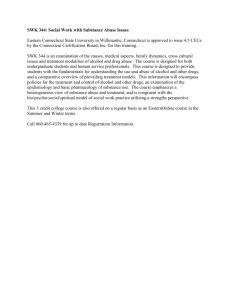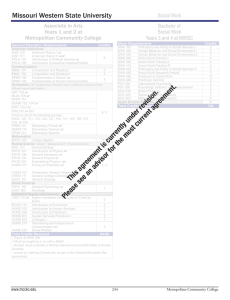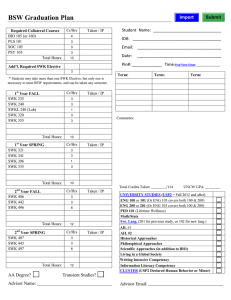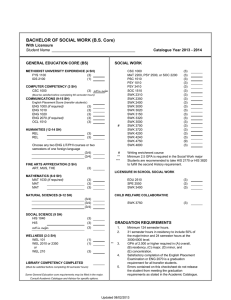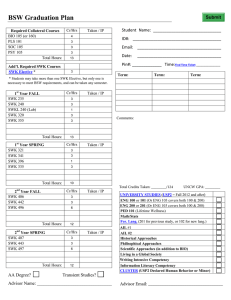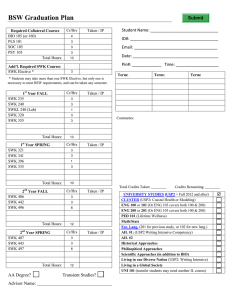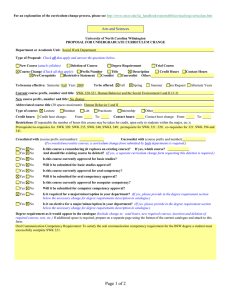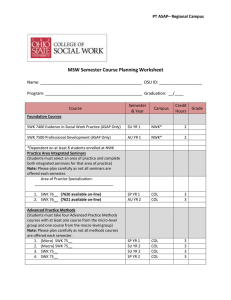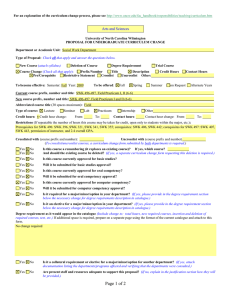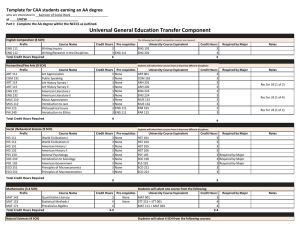WRITING ACROSS THE CURRICULUM – SOCIAL WORK
advertisement
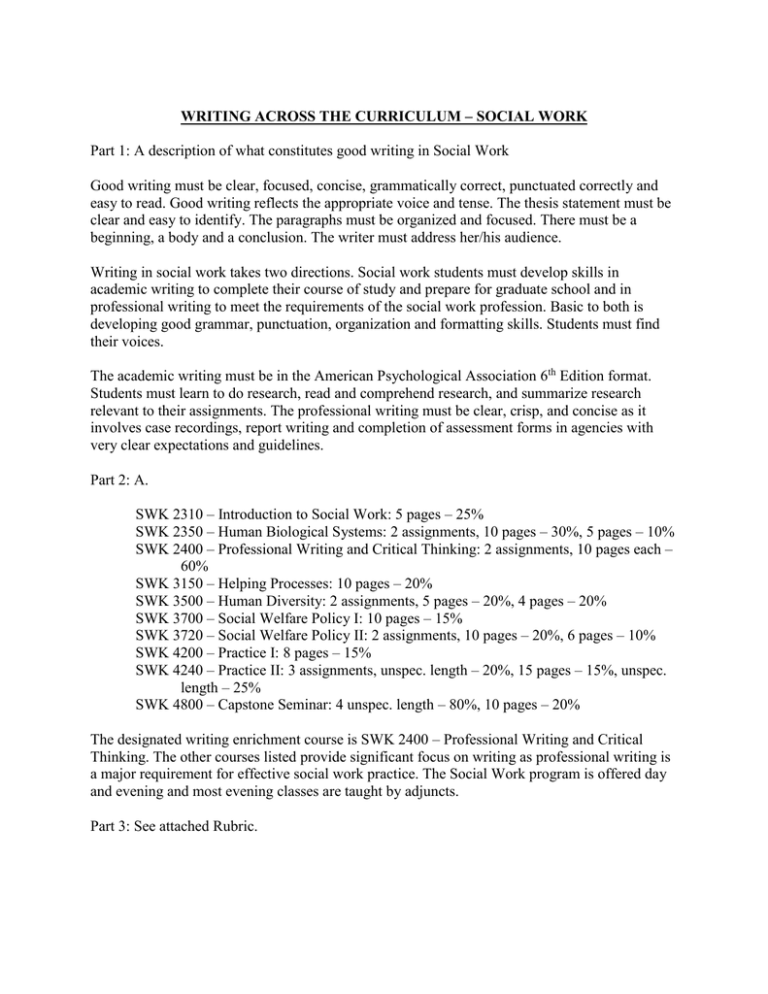
WRITING ACROSS THE CURRICULUM – SOCIAL WORK Part 1: A description of what constitutes good writing in Social Work Good writing must be clear, focused, concise, grammatically correct, punctuated correctly and easy to read. Good writing reflects the appropriate voice and tense. The thesis statement must be clear and easy to identify. The paragraphs must be organized and focused. There must be a beginning, a body and a conclusion. The writer must address her/his audience. Writing in social work takes two directions. Social work students must develop skills in academic writing to complete their course of study and prepare for graduate school and in professional writing to meet the requirements of the social work profession. Basic to both is developing good grammar, punctuation, organization and formatting skills. Students must find their voices. The academic writing must be in the American Psychological Association 6th Edition format. Students must learn to do research, read and comprehend research, and summarize research relevant to their assignments. The professional writing must be clear, crisp, and concise as it involves case recordings, report writing and completion of assessment forms in agencies with very clear expectations and guidelines. Part 2: A. SWK 2310 – Introduction to Social Work: 5 pages – 25% SWK 2350 – Human Biological Systems: 2 assignments, 10 pages – 30%, 5 pages – 10% SWK 2400 – Professional Writing and Critical Thinking: 2 assignments, 10 pages each – 60% SWK 3150 – Helping Processes: 10 pages – 20% SWK 3500 – Human Diversity: 2 assignments, 5 pages – 20%, 4 pages – 20% SWK 3700 – Social Welfare Policy I: 10 pages – 15% SWK 3720 – Social Welfare Policy II: 2 assignments, 10 pages – 20%, 6 pages – 10% SWK 4200 – Practice I: 8 pages – 15% SWK 4240 – Practice II: 3 assignments, unspec. length – 20%, 15 pages – 15%, unspec. length – 25% SWK 4800 – Capstone Seminar: 4 unspec. length – 80%, 10 pages – 20% The designated writing enrichment course is SWK 2400 – Professional Writing and Critical Thinking. The other courses listed provide significant focus on writing as professional writing is a major requirement for effective social work practice. The Social Work program is offered day and evening and most evening classes are taught by adjuncts. Part 3: See attached Rubric. METHODIST UNIVERSITY SOCIAL WORK RESEARCH PAPER GRADING RUBRIC Organization Criteria Sequence of information is difficult to follow Student does not have grasp of information; student cannot answer questions about subject. Minimal Detail/ development Specificity/ Thoroughness of ideas Content Knowledge Points Reader has difficulty following work because student Jumps around Student presents Information in logical sequence which reader can follow. Student is at ease with content, but fails to elaborate Information in logical, interesting sequence which reader can follow Some development of ideas with some relevant examples Good development of ideas with effective examples and convincing support Full development of ideas, persuasive, relevant sources, detailed and convincing support Student is uncomfortable with content and is able to demonstrate basic concepts. Student demonstrates full knowledge. Use of Sources Work displays poor use of APA formatting Work displays fair use of APA quoting, citing and reference page. Minor APA errors with quoting, citing and reference page. Work displays correct APA quoting, citing and reference page. Grammar and Spelling Work has ten or more spelling errors and/or grammatical errors. Work has six to nine misspellings And/or grammatical errors. Work has three to five misspellings and/or grammatical errors Work has one to two misspellings and/or grammatical errors. TOTALS
